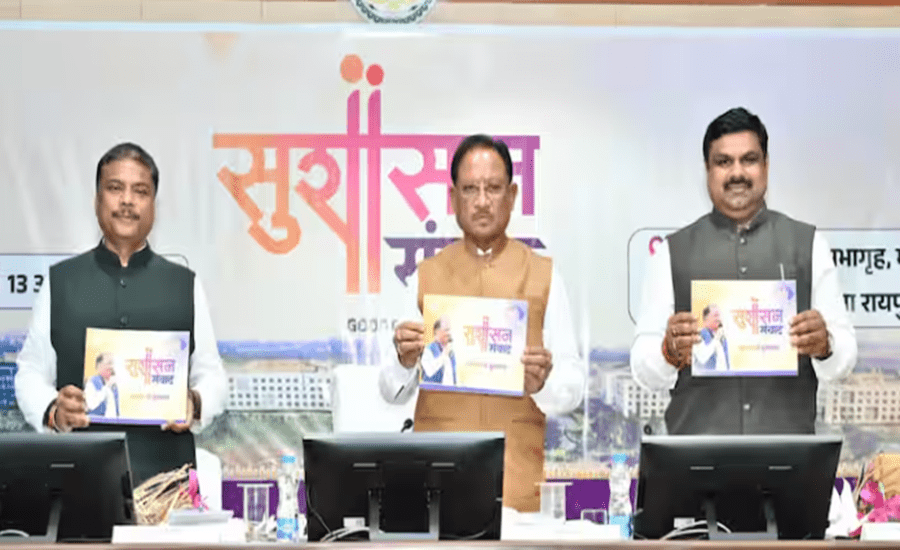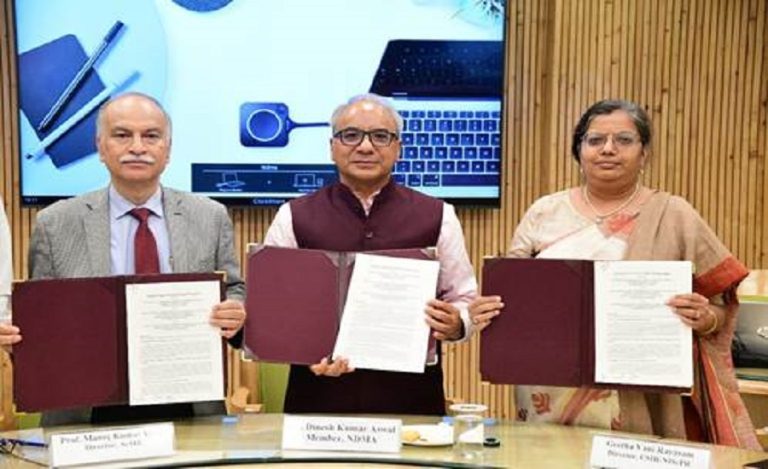In a high‑level “Good Governance Dialogue” convened at Mahanadi Bhavan, Chief Minister Mr. Vishnu Deo Sai laid out a clear vision for modernizing Chhattisgarh’s administrative machinery. The auditorium on the fifth floor hosted Forest Minister Mr. Kedar Kashyap, School Education Minister Mr. Gajendra Yadav, Chief Secretary Mr. Vikas Sheel, senior secretaries, collectors, DFOs, and other senior officials who heard the Chief Minister urge a shift toward innovation, citizen focus, and accountability in governance.
Innovation Must Be Practical, Sustainable, Citizen-Centric
Mr. Sai emphasized that innovation in public service must be long-term, practical, and truly convenience-enhancing. He cautioned against arbitrary experiments and urged that any new initiative should support flagship programs without disrupting basic administration. Collectors were tasked with integrating citizen feedback into innovations to ensure continuity and responsiveness over leadership changes at the district level.
Enforcing the Public Service Guarantee Act with Accountability
Describing the Public Service Guarantee Act as a cornerstone of state governance, Mr. Sai mandated that all services must be delivered within stipulated timelines and maintained at high quality. He signalled zero tolerance for delays, with directives that officials failing deadlines must face consequences under the Act. The next review will not only track resolved cases but also measure prosecutorial action against defaulting officers.
Institutional Discipline, Cleanliness & Full Digital Adoption
The Chief Minister praised the “Remove Old Documents” campaign and called for decongested, transparent offices. He directed full implementation of the e‑office system across all departments, urging a shift away from paper workflows. In parallel, he mandated that more services be migrated to the e‑district portal and that citizens be made aware of these options through awareness drives.
To eliminate opacity, Mr. Sai insisted on digital complaint resolution systems with real‑time status tracking. He argued that digital systems reduce corruption and build public trust in governance.
Field Visits, Inspections & Digital Monitoring Systems to Strengthen Oversight
According to the Chief Minister, governance cannot rest on surprise audits alone; regular field visits must become institutional practice. He reminded officials that just as depth must be judged by entering water, governance impact must be assessed on the ground. He encouraged district-level innovations such as:
- “Team Prahari” in Raipur, coordinating administration, police, and local bodies to remove encroachments and respond swiftly to citizen complaints
- “Intify” platform in Narayanpur, aggregating scheme data and tracking security metrics
- Blockchain land records in Dantewada, digitizing 700,000 documents to streamline transparency
- The “Jashpure” initiative in Jashpur, marketing health products under a Mahua Center of Excellence, with sales surging 300 percent across five states
These district-level success stories were presented and celebrated, and the Chief Minister released a coffee-table book chronicling them.
Leadership, Culture Change & Vision 2047
Chief Secretary Mr. Vikas Sheel echoed that good governance demands a transformed work culture and technological adoption—senior officers must lead by example. Mr. Sai invited all collectors to directly engage with citizens, strengthen scheme delivery, and embed discipline, transparency, and tech into the administrative DNA. His call: small continuous improvements today will shape a developed Chhattisgarh by 2047.




























